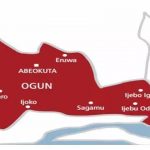The National Chief Imam of Al-Habibiyyah Islamic Society, Imam Fuad Adeyemi, has criticised the recent decision by some northern state governments to close schools for five weeks during the Ramadan fasting period.
The affected states include Bauchi, Katsina, Kano, and Kebbi, which have predominantly Muslim populations.
Speaking on a socio-political programme, Inside Sources with Laolu Akande, aired on Channels Television on Friday, Adeyemi said the closure of schools does not align with Islamic teachings.
He explained that Ramadan is a time for Muslims to strengthen their relationship with God and remain focused, not a period for shutting down important activities like education.
“To me, I see it as political,” Adeyemi said. “If you know the history of fast in Islam, they might say there is heat but the heat here cannot be as hot as Saudi Arabia.
“During a fast, there are lots of things that are done that change the way things are being done. For example, when Muslims moved from Mecca to Medina, there was a war that the Arabs waged against the Muslims; they said they wanted to exterminate Islam completely. There was a big war. The Arabs brought about 1,000 armed soldiers but the Muslims were about 213 in number and they didn’t have military arms. It was during a fast. They fought and they won – the 213 people won the 1,000 side.
“The point I am trying to raise is that: Ramadan is a time that you are serious with your God. It’s not a thing of entertainment but a serious period in the life of a Muslim.”
Adeyemi recalled how, during his own school days, fasting never disrupted his education.
“I remember when we were in secondary school, up to my university level, any exam I have in Ramadan, no matter how unserious I have been, I will come out excellently because of focus. Ramadan gives you focus in everything you do.
“So, this idea of closing schools, to me, I’m not part of it, I don’t believe in it, it doesn’t speak well of Islam.”
He further questioned the motive behind the school closures.
“This is the first time I hear a holiday in Ramadan. For Allah’s sake! For what purpose? You need to work.
“Even on a Friday, Islam does not ask you to lock your shops; it says go and work and when it’s time for prayers, lock your shops and when you finish praying, go back to your shops. Islam is a religion that has rules, you can’t just come one day and introduce a new system.”
Meanwhile, the Christian Association of Nigeria (CAN) has also condemned the school closures, describing them as discriminatory and a violation of the rights of non-Muslim students in the affected states.
The association argued that shutting schools for Ramadan could worsen the region’s educational crisis, especially given Nigeria’s high number of out-of-school children.
According to the United Nations Children’s Fund (UNICEF), Nigeria had about 18.3 million out-of-school children as of 2024.
CAN stressed that the decision was counterproductive, especially in a region already struggling with poverty and illiteracy.











